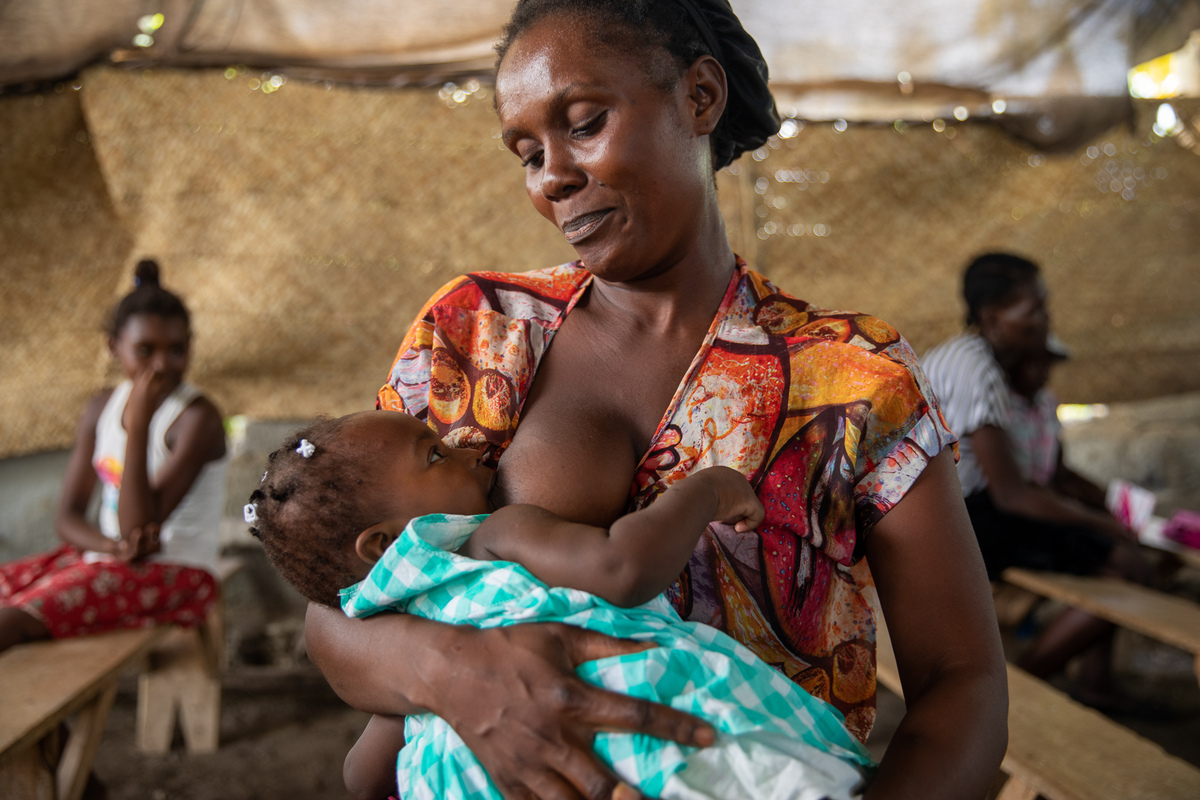
Celebrated from August 1st to 7th, World Breastfeeding Week 2022 is a global campaign organized by the World Alliance for Breastfeeding Action (WABA), the World Health Organization (WHO), and UNICEF with the aim of promoting exclusive breastfeeding for the first six months of life and continued breastfeeding until at least two years of age. Breastfeeding in this stage of life is essential because breast milk is the only food that contains antibodies and other substances that protect the child from common infections while being breastfed, in addition to preventing the appearance of several diseases in adulthood.
This year, the global campaign has the theme “Education and Support” and will focus on strengthening the capacity of people involved in the practice who must protect, promote and support breastfeeding at different levels of society. Since 2016, WAVA has aligned World Breastfeeding Week with the United Nations Sustainable Development Goals (SDGs). Breastfeeding is key to post-pandemic sustainable development strategies as it improves nutrition, ensures food security, and reduces inequalities between and within countries.
According to data from the Food Guide for Brazilian Children Under 2 Years of Age, although the practice of breastfeeding has increased in Brazil in recent years, its duration is still shorter than recommended. The National Infant Feeding Study (2019) pointed out that the prevalence of exclusive breastfeeding in children under six months was 45.8% in Brazil. By the end of the first year of life, only 43.6% of children are being breastfed.
Worldwide, the statistics are also below ideal: only four out of ten (44%) children are exclusively breastfed in the first six months of life, according to 2021 data from the World Health Organization (PAHO/WHO). The WHO points out that breastfeeding reduces mortality among children under five by 13%, prevents diarrhea and respiratory infections, reduces the risk of allergies, high cholesterol, diabetes, hypertension, and obesity in adulthood, protects the mother against some types of cancer, and helps in postpartum recovery.
As specified by Muriel Gubert, nutritionist and consultant for the WFP Centre of Excellence against Hunger in Brazil Nurture the Future project , low breastfeeding rates can be linked to several factors. “Marketing strategies adopted by the food industryto promoteinfant formula, without a doubt, is one of the most important factors,” she says. Another important point highlighted by the nutritionist is that in order to breastfeed, the woman needs to be supported and protected.
According to her, to protect women and promote breastfeeding it is necessary to strengthen some actions and policies that already exist: adoption of appropriate practices in maternity hospitals, breastfeeding in the first hour of life, access to maternity leave, and the dissemination of Human Milk Banks are some examples.
The Nurture the Future project, developed by the WFP Center of Excellence in partnership with the Ministry of Health and the Brazilian Cooperation Agency, has stimulated the production of knowledge and the exchange of successful experiences to support countries in finding solutions to childhood obesity. Among these recommendations is the encouragement of breastfeeding in the early years of life as a way to prevent obesity and promote health and proper nutrition for children.
Main recommendations
The first two years of life are the most decisive for the child’s growth and development, with repercussions throughout the individual’s entire life. Therefore, the recommendation is that the child should be breastfed from the first hour of life and that breastfeeding should continue for two years or more. Feeding other foods before the age of six months is not recommended, as it increases the risk of the child becoming ill and impairs the absorption of important nutrients present in breast milk, such as iron and zinc.
There is no maximum time established for the end of breastfeeding, and it can last as long as desired by the woman and the child, as long as there is no harm to both. The recommendation of the Ministry of Health is to breastfeed on demand during the first six months of life, that is, whenever the child asks for it. The practice aims to meet all of the baby’s needs, including emotional ones, with no pre-set times or breaks.
It is important that the woman also observes her physical and mental health, paying special attention to her diet, hydration, and rest during the breastfeeding period. At this moment, it is essential that the mother and the baby have an engaged support network, composed of family members, friends, and institutions, sharing responsibilities such as household chores and caring for the newborn.
The use of baby bottles and pacifiers is not recommended by specialists, since their use is associated with the interruption of breastfeeding, in addition to impairing the child’s ability to regulate appetite, and may cause excessive weight gain.
Human Milk Banks offer support to all mothers who are breastfeeding and it is not necessary to be a donor to seek the service. They welcome mothers who need help or guidance in matters related to breastfeeding. Today, Brazil has more than 220 milk banks in operation. To read more about the Human Milk Bank Network (rBLH) and human milk donation click here.




